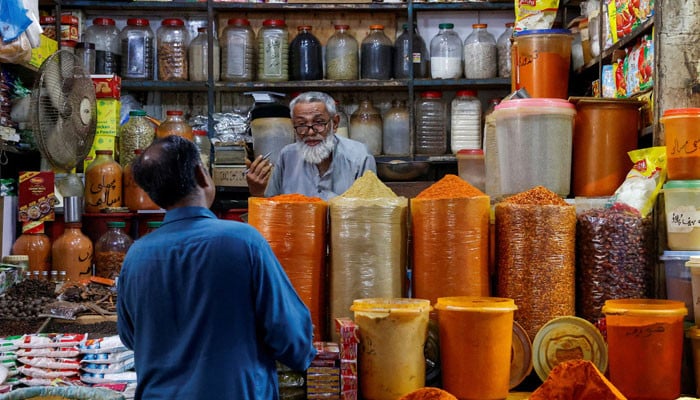Pakistan's Inflation Projected to Ease in July 2025: Ministry of Finance

Islamabad, Pakistan – The Ministry of Finance has released a positive forecast for Pakistan's inflation rate in July 2025, predicting a significant easing to between 3.5% and 4.5%. This marks a considerable improvement compared to recent inflationary pressures, and the ministry attributes this anticipated decline primarily to enhanced exchange rate stability and consistent fuel prices.
According to a statement released Monday, the government is actively working to maintain a stable macroeconomic environment. The stabilization of the Pakistani Rupee (PKR) against the US dollar and other major currencies has been a key factor in this projected decrease. Fluctuations in the exchange rate have historically contributed to inflationary trends, and the current stability is expected to have a dampening effect on prices across various sectors.
Furthermore, the Ministry highlighted the impact of consistent fuel prices. Unpredictable fuel price changes often ripple through the economy, affecting transportation costs and ultimately impacting the prices of goods and services. The government’s efforts to manage and stabilize fuel prices are seen as crucial in controlling overall inflation.
Economic Context and Analysis
This projected easing of inflation comes at a crucial time for Pakistan's economy. The country has faced significant economic challenges in recent years, including high inflation, a balance of payments crisis, and pressure on foreign exchange reserves. While the situation remains complex, this positive inflation forecast offers a glimmer of hope and suggests that government policies are beginning to yield results.
Economists are cautiously optimistic about the Ministry’s projections. While acknowledging the positive developments, they emphasize the importance of continued vigilance and sustained policy implementation. Key factors that could influence the actual inflation rate in July 2025 include global commodity prices, domestic demand, and any unforeseen external shocks.
“The projected inflation easing is a welcome development, but it’s not a guarantee,” commented Dr. Aisha Khan, an economist at the Institute of Economic Research. “Continued efforts to improve fiscal discipline, attract foreign investment, and boost exports will be essential to sustain this positive trend and ensure long-term economic stability.”
Looking Ahead
The Ministry of Finance remains committed to implementing policies that support sustainable and inclusive economic growth. The focus will be on maintaining macroeconomic stability, promoting private sector development, and creating employment opportunities. The government is also exploring measures to further reduce inflation and improve the living standards of ordinary citizens.
The release of this inflation forecast is a significant indicator of the government's economic outlook and provides valuable insight into the potential trajectory of Pakistan's economy in the coming months. It reinforces the importance of ongoing economic reforms and the need for continued collaboration between the government, the private sector, and civil society to achieve long-term economic prosperity.






